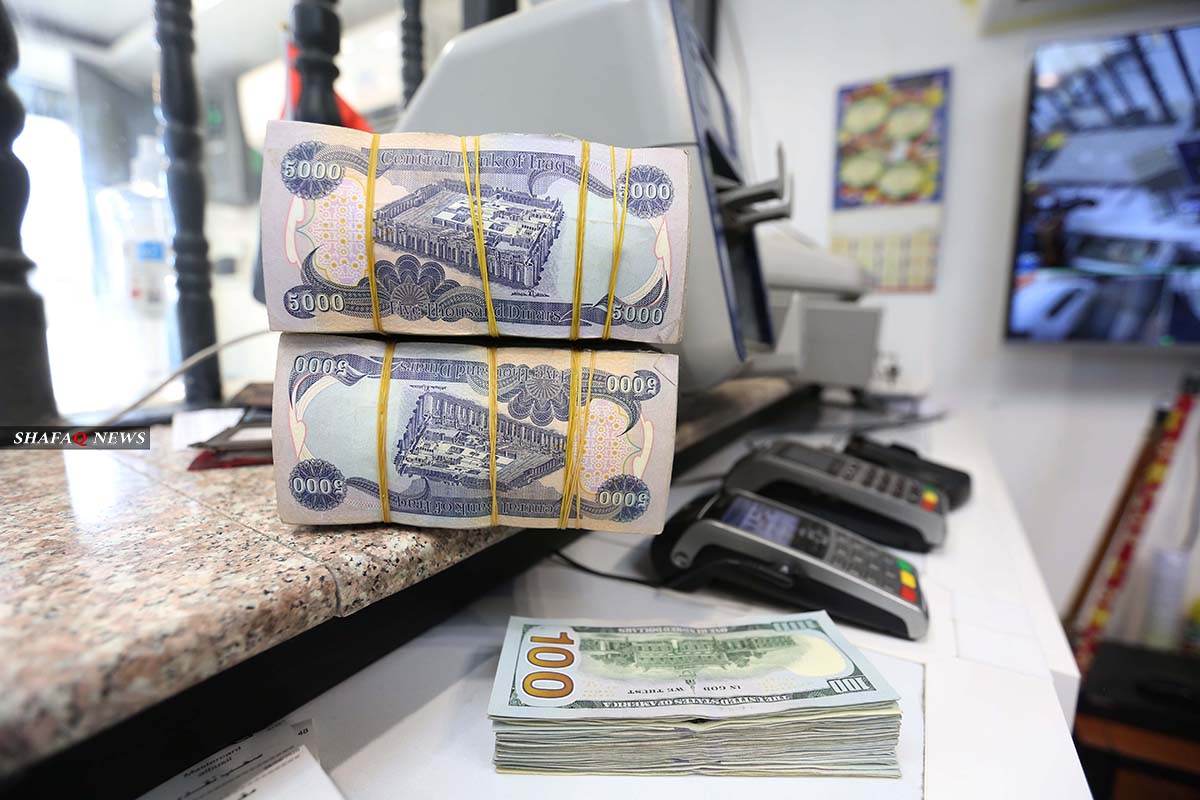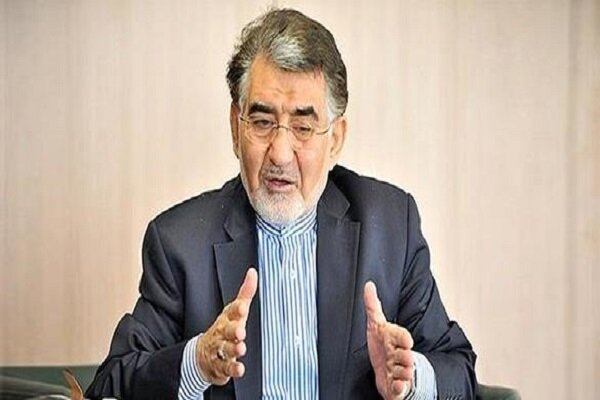Send the Money Saturday The white paper and the dollar price again.. an exciting statement by the Iraqi Finance Minister - Urgent

If you've come here and there is here is the My FX Buddies Blogpost:
Audio is below:
Electoral Commission: There are no “appeals” to the Federal Supreme Court
The Independent High Electoral Commission in Iraq confirmed today, Saturday, that there are no appeals against the results of the parliamentary elections “at the present time” with the Federal Court.
Imad Jamil, a member of the media team in the commission, told Shafaq News Agency, “There are no appeals against the results of the early parliamentary elections at the present time to the Federal Supreme Court, but there are complaints submitted to it, one from the Al-Fateh Alliance, another complaint about the quota for women, and a third from 3 candidates.”
Imad suggested that “the Federal Supreme Court will ratify the results of the early parliamentary elections in the near future, after considering the complaints submitted to it,” noting that “there is no constitutional or temporal timing that obliges the Federal Supreme Court to ratify any decision according to any period of time.”
The Federal Court, “the highest judicial authority in Iraq,” has set the 13th of this month as the date to consider a claim to annul the results of the Iraqi elections, which was presented by Hadi al-Amiri, the head of the “Al-Fateh” coalition, the Secretary-General of the Badr Organization.
Al-Kazemi’s advisor clarifies the mechanism for dividing the interest granted on advances and loans
Today, Saturday, the financial advisor to the Prime Minister determined the mechanism for granting housing loans to citizens and the repayment period, stressing that the housing loan commission has been reduced to 5% to be paid in one payment, revealing the mechanism for dividing the housing loan commission rate between the Central Bank and loan-granting banks.
Mazhar Salih said, in a statement to the official agency: "The Central Bank of Iraq, through the housing initiative, took over reducing the loan profit to become a bank commission of about 5%, which is collected only once in advance when granting a mortgage or housing loan only, to cover the administrative cost of the loan itself and be repaid." The loan is over a period of 20 years.
He added, "The Central Bank charges 1% of the commission, and the remaining 4% is for the bank or housing fund that manages the loan, to cover the costs of servicing administrative loans."
He continued: "This means that the loans of the Central Bank's housing initiative, in particular, are among the soft loans in which (the grant element) rises in order to serve the path of economic development and support the housing boom in our country, at the lowest costs and free of bank interest
Planning determines the priority of projects in the 2022 budget
Today, Saturday, the Ministry of Planning set the priority of projects in the 2022 budget.
Ministry spokesman Abdul-Zahra Al-Hindawi told Al-Wasmiya News Agency that "the important projects that will be included in the next year's budget will be the priority for the ongoing projects that are under implementation," noting that "the focus will be on projects that have different completion rates."
He explained that "the inclusion of new projects will not be extensive as long as the old ones are not implemented," noting that "the inclusion of new projects will only be for the utmost necessity and with the approval of the Council of Ministers."
The Ministry of Planning announced, earlier, that there are more than 6000 projects under implementation.
Ministry spokesman Abdul-Zahra Al-Hindawi told the official agency and (Al-Oula News) continued: "There are more than 6000 projects under implementation," noting that "the ministry's priority is how to sign these projects and ensure that they do not stop in front of any financial or any other circumstance."
He added that "there is a focus on service-oriented projects with high rates of implementation and projects that provide job opportunities, including health, housing, education, roads, irrigation, water and sewage projects," noting that "these projects are essential because they represent a service to the citizen while providing job opportunities.
Baghdad sends 200 billion dinars to Kurdistan Region to finance the salaries of employees

The Central Bank of Iraq branch in Erbil is scheduled to deposit 200 billion dinars in the bank account of the Ministry of Finance and Economy in the Kurdistan Region, in order to finance salaries for employees and workers in the public sector.
A source in the regional government told Shafak News Agency, that the amount will be transferred to the ministry's bank account tomorrow, which will speed up the process of distributing salaries.
On November 25, the ministry began distributing salaries to the region's employees, but many ministries, departments and government institutions did not receive the salaries.
The Kurdistan Regional Government had attributed the end of last month to the slow process of distributing salaries to the lack of all internal revenues as necessary.
And Prime Minister Mustafa Al-Kazemi had decided last June to disburse 200 billion dinars as an advance allocated to pay the monthly salaries of the region's employees.
Government officials in Kurdistan confirm that without this monthly funding that Baghdad sends to the region, it is difficult to pay the salaries of hundreds of thousands of employees and retirees in full and without deduction.
The regional government provides the rest of the amounts for the disbursement of salaries from the internal financial revenues in Kurdistan
Economist: Iraq Wanted To Exceed A Trillion Iraqi Dinars
The Economic Expert, Manar Al-Obaidi, Stated, On Saturday, That Iraq's Imports Exceeded The Trillion Iraqi Dinars Barrier.
Al-Obaidi Said, In A Post On His Facebook Page, That "Iraq's Imports For The Years (2011-2021) Amounted To More Than One Trillion Iraqi Dinars (1,000 Trillion Iraqi Dinars)," Noting That "The Share Of Oil Revenues, Including 912 Trillion Iraqi Dinars, Represents 90% Of The Total Revenues. “.
He Added, "The Total Expenditures Of The Iraqi State Over These Years Are 1.017 Trillion Iraqi Dinars, Operating Expenses Amounted To 776 Trillion Iraqi Dinars, While Investment Expenses Amounted To 241 Trillion Iraqi Dinars."
He Pointed Out That "Each Iraqi's Share Of The Total Revenue Is 28 Million Iraqi Dinars."
He Pointed Out That "The Total Cumulative Deficit For The Past Eleven Years Is About 12 Trillion Iraqi Dinars
For this reason.. Cancellation of official “holidays” for employees of the Ministry of Finance
Today, Saturday, the Ministry of Finance decided to continue working for its employees during the holidays of this month.
The ministry said in a statement, received by the "National News Center", that it decided "to continue the official working hours on Friday and Saturday during the current month in the budget department to complete the transactions of departments, ministries and governorates before the end of the fiscal year.
An agreement was signed between the two central banks in Tehran and Baghdad regarding Iraq's debts

The head of the Iranian-Iraqi Chamber of Commerce announced today the conclusion of an agreement between the two central banks in Tehran and Baghdad regarding Iraq's debts, pointing out that Tehran has received some oil and gas export dues to Iraq
And Mehr News Agency reported that the head of the Iranian-Iraqi Chamber of Commerce, Yahya Al Ishaq, announced today the conclusion of an agreement between the two central banks in Tehran and Baghdad regarding Iraq's debts, indicating that Tehran has received some oil and gas export dues to Iraq.
The head of the Iranian-Iraqi Chamber of Commerce indicated: The Iraqi debt ranges between 5 and 7 billion dollars
The white paper and the dollar price again.. an exciting statement by the Iraqi Finance Minister - Urgent
link look at the last sentence at least
This is a better translation
Finance Minister Ali Allawi stressed, today, Saturday, that Iraq needs a radical reform of the economic management system to face challenges, including the decline in oil prices, warning that many industrialized countries have begun planning to use alternative energy instead of oil, and this is a dangerous matter for Iraq's economy over time if No alternative oil resources were available.
Allawi said, in a televised interview, "There was financial abundance between the years 2009-2013, but on the other hand, there were no clear economic policies, as financial resources were transferred from oil sales to government appointments." He added, "The increase in employee salary entitlements and contracting due to the financial abundance, put pressure on the state's finances due to the decline in oil prices."
Finance Minister Ali Allawi stressed, today, Saturday, that Iraq needs a radical reform of the economic management system to face challenges, including the decline in oil prices, warning that many industrialized countries have begun planning to use alternative energy instead of oil, and this is a dangerous matter for Iraq's economy over time if No alternative oil resources were available. Allawi said, in a televised interview, "There was financial abundance between the years 2009-2013, but on the other hand, there were no clear economic policies, as financial resources were transferred from oil sales to government appointments."
He added, "The increase in employee salary entitlements and contracting due to the financial abundance, put pressure on the state's finances due to the decline in oil prices."
He added that "investment spending in Iraq is large after 2003, but it was not in accordance with the regulations, and most projects were motivated by personal or sectoral motives, not economic projects."
He pointed out that "there is a great waste and misuse of resources more than theft or corruption, and incompetent people presented projects and managed by unqualified people, and there are huge resources spent on projects, but their economic impact is small."
He pointed out that "there are hospital projects that were approved after the year 2011, but were not completed, and some of them did not have allocations, and the specialists withdrew and some benefited, and structures remained," noting also that "small projects in most cases are more beneficial to the economy than major projects."
Regarding the white paper on economic reform, Allawi explained that "the white paper is a 100% Iraqi project, the goal of which is to strengthen the capabilities of the state, that the white paper began with reforming the state's public administration and then reforming the country's finances."
And on the available capabilities and how to invest them, Allawi said, "Iraq can benefit from its geographical situation to be a crossing through the implementation of ports and highways linked to railways, and industrial projects, and Iraq needs a radical reform of the economic management system to face challenges, including the decline in oil prices."
And he warned that "the Iraqi economy is based entirely on oil revenues at a rate of 95 percent, and in the last two years the economies of the major and industrialized countries began looking for an alternative to oil, and this is a danger to us, and alternative sources of oil must be found to counter this decline. The Gulf countries have financial investments worth two trillion dollars to face the threat of decline." Oil prices. He pointed out that "the state's spending is large, but in return it needs additional resources, for example, not paying electricity bills by citizens costs the state 15 trillion dinars annually."
He stressed that "Iraq possesses economic human capabilities and a vision that diagnoses challenges and lays down the means for economic stability."
And on the history of the Iraqi currency, Allawi stressed that "the dinar currency was adopted in Iraq at the beginning of the twenties of the last century, and each dinar was equivalent to 4.80 dollars, the dinar was backed by gold."
No comments:
Post a Comment